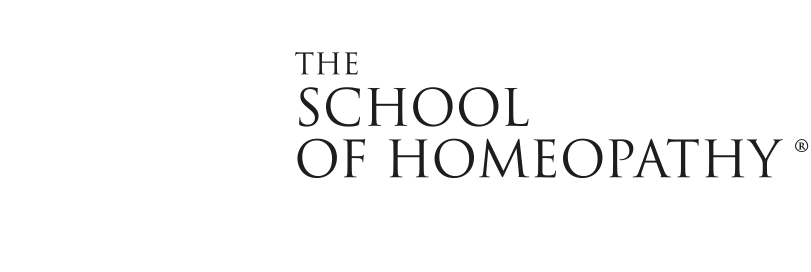


Homeopathy
Intro into Practice
Course Content
Beginning in-depth analysis of chronic cases; anamnesis; prognosis; the evolving theory of Miasms and its practical interpretation; the matching of potency to the patient; reviewing plans and strategies for case analysis; evaluating the effects of suppression and other blockages in any given case; evaluating the response to treatment and when to give a second prescription; reviewing the Organon; reviewing Kent's philosophy; introducing the Mappa Mundi and beginning to apply it to casework and remedy synthesis.
Remedies Studied
Alumina, Anacardium, Antimonium Crud & Tart, Apis, Cannabis Indica, Calc Phos, Calendula, Camphora, Carcinosin, China, Cimicifuega, Colocynthus, Conium, Cuprum, Drosera, Helleborus, Hepar Sulph, Hyoscyamus, Hypericum, Kali Carb, Ledum, Lillium Tig, Nitric Acid, Opium, Platina, Plumbum, Psorinum, Pyrogen, Stramonium, Stannum, Syphilinum, Tarentula Cub & Hisp, Thuja, Veratrum Alb.
Cases Studied
Darren – assignment case
Bewildered – example case
Mr DD 1st Casetaking – assignment case
David - example case
Darren – analysis case
Mr DD 1st Casetaking – analysis case
Mr DD 2nd Casetaking – assignment case
Natalia – assignment case
Maya – example case
Miss Soulange – assignment case
Mrs MH – assignment case
Rita – assignment case
Mr DD 2nd Casetaking – analysis case
Rubin – example case
Wilf’s Wife – assignment case
Insanity – assignment case
Mrs MH – analysis case
Rita – analysis case
Alexis – assignment case
Wilf’s Wife – analysis case
Full detail of each month is given below, with the aims and learning outcomes
2-1 September : Timelines
Aims
This month aims to take your case receiving tools further by introducing you to the idea of a timeline. You will look at timelines as a way of organising case disease progression and understanding direction of cure. You will begin to integrate the materia medica skills that you acquired in Year 1, by looking at themes, signatures and connections between mental and physical states, thus enlarging your knowledge of remedies. You will study a case using the timeline tool.
Learning Outcomes
At the end of this month you will be able to:
- Explain the use and importance of timelines in cases.
- Identify links between a case timeline and direction of cure.
- Analyse, repertorise and differentiate between remedies for a case by using the method of a timeline.
- Identify key signature elements of homeopathic remedies and relate them to mental, emotional and physical symptoms
- Compare and contrast the key symptoms of three remedies in relation to the same theme
2-2 October : Miasms 3-6
Aims
This month aims to further develop your understanding of Hahnemann’s concept of the three fundamental miasms; Psora, Sycosis and Syphilis. You will study the development and history of his theory and how it has evolved to include the miasms of tuberculosis and cancer. You will then apply your knowledge of miasms to remedies and creatively illustrate aspects of miasm characters. In this month you will begin to keep a working journal, where you will log ongoing notes and thoughts about your own experiences. You will study two further remedies. You will also review the case studied in the previous month to critically evaluate your own analysis and study a further case with an emphasis on miasms.
Learning Outcomes
At the end of this month you will be able to:
- Outline the three fundamental miasms as described by Hahnemann
- Explain the practical application of homeopathic miasm theory
- Identify key signature elements of a homeopathic remedy and relate them to mental, emotional and physical symptoms
- Analyse, repertorise and differentiate between remedies for a case by using the method of a timeline
2-3 November : Case Management
Aims
This month aims to introduce you to the concept of case management, outlining what is involved in assessing how a patient has reacted to a remedy and subsequently how the homeopath can proceed with treatment. You will study aspects such as noticing signs of change, re-prescribing or changing a prescription and the factors that are important when selecting potency and dosage of a remedy. You will also study five remedies from the homeopathic materia medica, three of these belong to the same botanical familiar and group themes will be explored and identified. You will also review the case studied in the previous month to critically evaluate your own analysis and study a further case with an emphasis on themes.
Learning Outcomes
At the end of this month you will be able to:
- Identify and explain when to re-prescribe or change medicine, frequency or potency during the course of treatment
- Identify synthesis signature information of two homeopathic remedies and relate them to mental, emotional and physical symptoms
- Compare and contrast three remedies from the same botanical family
- Analyse, repertorise and evaluate a remedy choice for a case using miasm theory
2-4 December : Layers & Nosodes
Aims
This month aims to introduce you to the layers theory and how to apply this to case work. You will also look at homeopathic nosodes and how they can be used in case work. In addition, you will continue broadening materia medica skills. You will have a brief introduction to Jan Scholten’s work on minerals and analysis and how the constitute parts of a mineral remedy can be synthesised together to understand the whole. You will also review the case studied in the previous month to critically evaluate your own analysis and study a further case with an emphasis on themes.
Learning Outcomes
At the end of this month you will be able to:
- Explain the ‘layers’ theory in case work and analysis
- Identify nosode remedies
- Expain the use of nosode remedies in case work and analysis
- Outline how the use of a homeopathic mineral remedy can be understood by analysing its constitute parts
- Demonstrate how specific rubrics reflect the greater remedy picture
- Analyse, repertorise and evaluate a remedy choice for a case using themes theory
2-5 January : Case Strategies
Aims
This month aims to introduce you to some alternative strategies of case analysis. You will study a patient’s response to a remedy and look at further outside factors that govern this response. These include accuracy of the prescription, vitality of the patient and the practitioner-patient relationship. You will also be introduced to the idea of earth, water, air and fire in homeopathy. You will also review the case studied in the previous month to critically evaluate your own analysis and study a further case with an emphasis on layers and nosodes.
Learning Outcomes
At the end of this month you will be able to:
- Identify the factors that can affect a patient’s response to a remedy
- Analyse favourable and unfavourable reactions to a remedy
- Summarise the state of a remedy
- Analyse a case example in detail and make appropriate suggestions for remedies, potencies and dosage, using the layers theory
2-6 February : Mappa Mundi
Aims
This month aims to introduce you to the Mappa Mundi (The Four Elements), the interpretation of symptoms and symbols and how this can be applied to analysis and remedy selection. You will learn the origins of the Mappa Mundi, dating back to ancient Egypt, study the four elements and their associated temperaments and how the Mappa Mundi can be applied in homeopathy. In addition, you will study the themes of drug remedies with in-depth analysis of Cannabic Indica and Opium. You will also review the case studied in the previous month to critically evaluate your own analysis and study a further case with an emphasis on miasms.
Learning Outcomes
At the end of this month you will be able to:
- Explain and consolidate your knowledge of the Mappa Mundi
- Illustrate the Mappa Mundi with its associated symptoms
- Describe the remedy state of a homeopathic remedy, and compare this with another remedy
- Analyse, repertorise and evaluate a remedy choice for a case using miasms theory
2-7 March : Follow-Ups
Aims
This month aims to consolidate your knowledge of case management and test your skills by studying how to manage and take a follow-up consultation. You will also extend your study of the Mappa Mundi by mapping out five key homeopathic remedies. You will also review the case studied in the previous month to critically evaluate your own analysis and study a further case with an emphasis on being an unprejudiced observer.
Learning Outcomes
At the end of this month you will be able to:
- Assess prognosis for a patient after observing the action of the medicine
- Explain the main factors that could alter a patient’s prognosis
- Analyse the requirements and factors for different case management scenarios
- Illustrate and map out five homeopathic remedies using a Mappa Mundi
- Critically analyse a case, noting discrimination that could arise within it
2-8 April : Vaccination
Aims
This months aims to deepen your understanding of acute and chronic disease and acute prescribing. You will also study the issue of immunisation by vaccination. You will critique and discuss the issues surrounding this, including the pros and cons in line with homeopathic philosophy, miasms and genus epidemicus. You will evaluate ways in which a practitioner can discuss with patients this controversial subject and map out a homeopathic remedy using the Mappa Mundi. You will also review the case studied in the previous month to critically evaluate your own analysis and study a further case with an emphasis on considering the other case and pregnancy.
Learning Outcomes
At the end of this month you will be able to:
- Outline government policy for immunisation in your country
- Critically review immunisation by vaccination with reference to the theory of miasms and genus epidemicus
- Evaluate strategies for patients who appear not to have been well since vaccination
- Illustrate the state of a remedy using a Mappa Mundi
- Analyse, repertorise and differentiate effectively between remedies in a homeopathic case
2-9 May : Introduction to Sensation
Aims
This month aims to introduce you to Rajan Sankaran’s concept of Vital Sensation and the Seven Levels. You will also evaluate your skills in taking a case while under supervision. You will reflect on your personal journey throughout a case, noting the techniques you employed and whether they were effective or not. You will continue your study of the materia medica and remedy states. You will also review the case studied in the previous month to critically evaluate your own analysis and study a further case with an emphasis on miasms.
Learning Outcomes
At the end of this month you will be able to:
- Outline the work of Sankaran and introduce the idea of Vital Sensation
- Explore Sankaran's work on the seven levels
- Critically analyse and reflect upon your casetaking ability
- Describe techniques you used under supervision and evaluate their pros and cons
- Analyse a case using miasmatic theory
2-10 June : Introduction to Supervision
Aims
This month aims to prepare you for the practise of homeopathy so that you may begin seeing your own patients under supervision. You will be introduced to the clinical supervision process and how to prepare for supervision. Various aspects of case taking under supervision will be covered, including how supervision can help you become a better practitioner, finding your supervisor, what is involved in the case-taking process under supervision, the legal and ethical requirements and how to present your cases. You will continue your study of the materia medica and remedy states. You will also review the case studied in the previous month to critically evaluate your own analysis.
Learning Outcomes
At the end of this unit you will be able to:
- Define the meaning of clinical supervision
- Outline the minimum requirements to start clinical supervision
- Take patient cases under clinical supervision
- Explain the importance of ethical behaviour and consider strategies for dealing with ethical dilemmas in practice
- Communicate effectively and ethically with patients, families and other healthcare professionals
- Review and analyse your own process of clinical supervision

Training as a homeopath at School of Homeopathy has been a wonderful, inspiring and life-changing experience. I have learned so much about so many things, especially the fascinating depths and uniqueness of each individual patient. Being a homeopath is humbling, extremely rewarding and never ever boring. I love it so much.
Samantha Pereira, Graduate















